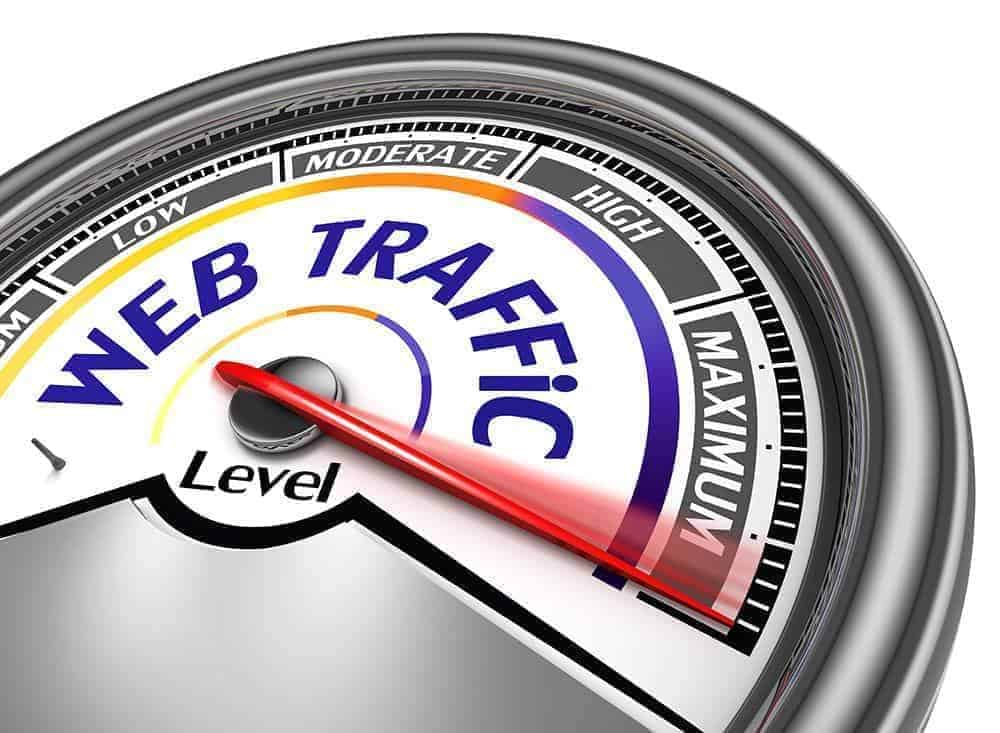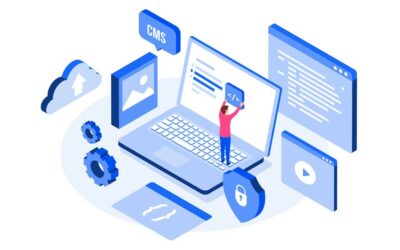How Website Speed Can Affect Your Business Bottom Line
In business, the difference between success and failure can be measured in seconds. Opportunities can come around knocking; or clicking on your website URL, every day. If your website speed isn’t fast enough to open the door, opportunity will turn around and find someone else. Speed is an overlooked quality in website design. Not many entrepreneurs are aware that a one second delay in loading time can lead to thousands of dollars in foregone income.
Built for Speed: The Case for Fast and Responsive Website Design
Unless it’s for dry aged, prime rib Angus beef, nothing is worth the wait. In the Internet, people are less forgiving. Studies have shown there is a direct correlation between page loading time and page abandonment. The longer time it takes for a page to load the greater the probability of the user leaving the page.
Although the study revealed more people expect web pages to load a bit slower on a mobile device than a PC, a 30% reported they would still abandon the search if it took longer than 6 to 10 seconds.
For e-commerce websites, the expectations for speed are even higher. A 2009 study commissioned by Forrester Consulting showed that 40% of shoppers would abandon a retail site if it took longer than 3 seconds to load.
As mobile devices continue to dominate online traffic, expect speed to become a more important factor in determining the search ranking of your website. This is because search engine giant Google has begun transitioning to its “Mobile First” advocacy where website speed is a ranking factor.
This should not come as a surprise because Google has made it clear it favors fast loading websites. Google has always been about enhancing UX or User Experience and speed has been one of its determining factors.
A website with favorable UX will most certainly enjoy higher conversion rates than one that doesn’t. As far back as 2011, Google has been pushing websites to focus on improving its loading speed.
It’s not enough to have a mobile responsive website. You must make sure it loads fast enough to keep your visitors interested.
How Will the Lack of Speed Affect Your Bottom Line?
Because site speed is a ranking factor in Google’s algorithm, the faster your website, the higher its search ranking. The higher your ranking, the greater the opportunities for generating more traffic.
It all comes back to UX. If a visitor likes his experience in your website, he will be encouraged to explore its content further. If the experience is not pleasant, he will click out of your page and this will increase your site’s bounce rate. Google uses bounce rate to determine UX. A high bounce rate will get you penalized in the search rankings.
A 2010 study revealed that a website that took more than 6 seconds to load experienced a 40% decrease in conversion rate. Fast forward to 2014, and the same loading time resulted in a 50% decrease in conversion rates. Please take note that in 2010, the desktop PC still accounted for the majority of online traffic.
In terms of earning potential, a study on website speed has shown how it can lead to thousands of dollars of foregone income. Basically, a one- second delay in website speed can result in 11% fewer page views, 16% decrease in customer satisfaction and 7% loss in conversions.
In monetary terms, if your business makes $5,000 a month, a one- second delay in website speed can lead to a foregone income of $350 per month or $4,200 annually. Can your business afford to take a $350 hit every month?
Now can you imagine what a one- second delay would mean to companies that make $100,000 or $1,000,000 per month?
How Fast Should Your Website Be?
As mentioned, a majority of people expect websites to load a bit more slowly on mobile devices than its PC counterpart.
But what exactly is “a bit more slowly” mean in terms of seconds?
The average page loading time of the top ranking sites in Google has been measured to be between 9.82 seconds and 13.84 seconds. An updated study on mobile web sites showed that its average loading time is 19 seconds over 3G connections.
Mobile users appear to have very high expectations of website speed with 53% of respondents stating that they would abandon the page if it took longer than 3 seconds to load.
Comparing websites that loaded in 5 seconds versus those that loaded in 19 seconds, the faster websites enjoyed 25% higher ad viewability, 70% longer sessions and 35% improvement in bounce rates.
There lies the challenge for the professional web designer. It must be mobile responsive with the ability to load in 3 to 5 seconds.
Factors That Affect Website Speed
If your website is not loading fast enough, the first area where you should look is your web host provider.
One of the problems of sharing a server is unpredictable quality of service. Some days you’re fast. Some days you’re just furious. If you’re using WordPress, you will get better performance by signing up with WordPress premium managed hosting services.
Other factors that affect website speed include:
- Unoptimized Images- Your site may have both JPG and PNG images which contain extra data to accommodate comments. As a rule, JPG images are better for photos while PNG works best for logos.
- Widget/ Plugin Overload – It could also be your social media sharing buttons. The Facebook “Like” button downloads 83 KB of data in 1.34 seconds.
- Incompatible Browser, Plugins and Apps – For sure, many of you have had problems with Flash and the Chrome browser. Flash isn’t even compatible with many mobile devices.
- Too Many Ads – Once your website gains traction, placing ads is a great way to earn passive income. However, slow loading ads can turn off site visitors.
- Sign Up Forms – The back end code of a submission form typical of AWeber or Google Feedburner can slow down your site speed.
- Analytics Code – On-site analytics tools are valuable for measuring performance but it doesn’t take much to weigh down your website’s loading speed. Before introducing new analytics tools, test your site speed first.
- Design Theme – The most effective website is the one that can balance aesthetics and functionality. Adding that colorful image may make your website more beautiful. But if it severely impacts your website speed, you’d be better off without it.
- Embedded Media such as Videos and Slide Presentation – Have you ever gone to a website with embedded videos? It can get frustrating when it takes time for the video to load. And the problem is usually from the website from where it is hosted. It would be advisable to host content on your own server.
How to Test Your Website’s Speed
If you’re curious to see how fast your website loads, there are a number of tools you can use to measure its speed.
- WebPage Test – This Google- supported speed checker will give you detailed charts, measure Page Speed optimization and will provide suggestions after analyzing your score.
- PageSpeed Insights – An easy to use tool that will measure performance of both desktop and mobile versions of your website. Recommendations will be categorized according to priority.
- MonsterInsights – Perfect pairing with WordPress; it can be used to determine SEO and measure load time with different browsers.
- YSlow – Created by Yahoo!; provides grades from a pre-defined user set of rules, summary of improvement and performance analyses.
- Pingdom Website Speed Test – It can measure speed in browsers like Chrome and can compare your performance with other tools such as MonsterInsights and YSlow.
- GTMetrix – You will receive 2 grades; one from GTMetrix and the second from YSlow. You will also get a history of your speed loading times.
- WebPage Analyzer – Gives you data on page size, download time and composition plus valuable advice on how to improve website speed.
- LoadImpact – Website analysis assumes a scenario whereby your site is packed with users. This way, you will know what to do given the situation and load speed has been compromised.
- PageSpeedTool – Gives you in-depth analysis on page load time plus tests at different connection speeds.
Should You Speed Up Your Website?
There are those who say website speed isn’t all that it’s cracked up to be. They point out the speed is only one of 200 ranking signals that Google uses to evaluate websites.
Some will argue that less than one percent of search queries are affected by site speed.
But the numbers on the performance of businesses with slow loading websites do not lie. A slow- loading website will definitely affect your chances of converting those leads you’ve worked so hard to generate into paying customers.
If you want to build up your business’ bottom line, you should speed up your website.
You should also keep in mind the irrefutable fact that Google loves speed. And if you don’t want to catch a virus when Google sneezes, you better do what you can to get your website running like Usain Bolt on the last 40 meters of a race.
Finally, just place yourself in the same padded chair of an Internet user. You would feel less likely to push through with the search if the site takes too long to load. It’s not an opinion; it’s basic human nature to detest waiting.
Do you have ideas, thoughts and opinions that were not covered? Please feel free to e- mail us or comment below and share your experiences with websites.
If you want to know how we can bring your website up to speed, give us a call or drop an e-mail. We’ll get back to you within a click of the mouse!







